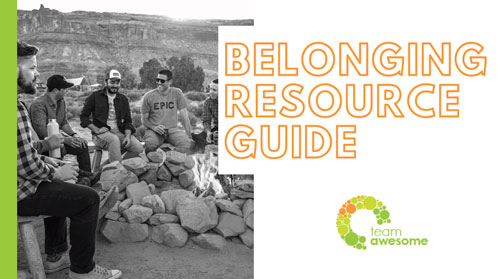I honestly didn’t realize I was a Millennial until last year. Here I was, growing up my whole life in the generation that was handed to me (get the joke there?), and it took me until my thirties to realize that I was, in fact, a Millennial. That sounds ridiculous.
I call it the “M word;” it has become a connotation with which our young leaders don’t want to identify. For decades, there has been a “kids these days” rhetoric, but this is different. This seems to run deeper in who we feel we are as young leaders, and how the rest of the world insists on reporting about us. I hear Millennial shaming every day in coffee shops, at networking events, and even in my closer circles. It has become so rampant that people don’t realize that they are doing it, and it feels so socially accepted that they take no pause in speaking poorly about what is now the largest generation in the workforce.
Now, be honest. Is this you? If it is, no judgement because now you have the awareness and opportunity to choose a different way. I get where you are coming from, and it is totally understandable to be frustrated by anyone who doesn’t put forth the care and effort in life that you do. However, I see something different in the world. I see Millennials who are full of heart and wildly committed to their work, life and values. I also see people of every generation who don’t put forth care or effort in their work.
I propose a different approach. I want to advocate for better understanding of our young leaders, and below are three different tactics that you can incorporate in your thought process and actions immediately. Are you willing to try something different?
Understand Someone’s “Why”
While sometimes you might be right about the “what,” consider that the “why” may be an assumption that you made up in your head to fill in the story. Here are a few examples from my own experiences to help add context here.
“Millennials don’t like to talk to anyone, they prefer to just text.”
For me, yes, I prefer to text. But not for the reason you may have assumed. I prefer to text because I want to bother people as little as possible, and text allows them to respond with little time invested and whenever they can get to it. A phone call or a voice mail feels like more work for the other person to answer a quick question. Otherwise, as a rule of thumb, I prefer to communication face to face.
“Millennials don’t want to work, they want to go to yoga in the middle of the day.”
I do want to work, and in fact, many of my generation have worked longer hours resulting in higher and faster burnout (myself included) than previous generations. However, I also recognize that how we have always done it may not mean the best way. So yes, I would like to go to the gym for a 9:00 a.m. cycle class because it makes me feel awesome, and then catch up on a few hours of e-mail on my couch at night. It balances out, I eventually end up clocking more work hours anyways, and I actually filled my bucket with something that makes me a better wife, mom, and leader.
I will also note that both of these examples (which I have personally heard spoken) include the word “don’t.” If we turned it around to say only what Millennials “do,” what would that look like?
Pause, Think, Then Speak
The next time you are in a conversation regarding your frustration with a group of people, such as Millennials, I invite you to try this exercise. Pause, then think. In your head, replace the topic group of people, like Millennials, with another generalized group of people that you would not feel comfortable airing grievance about. Would you feel comfortable making sweeping claims about the elderly, a certain race or ethnic group, religion, or people with disability? If not, then consider if it is appropriate in this case to generalize or speak frustration about a full generation of people. It is always your choice to speak, and I do not judge your choice, but taking this approach might help you decide whether or not what you are saying may be harmful for a group of millions of people.
Choose Curiosity Over Judgement
If you are passionate to get the bottom of what Millennials want (and I encourage you to do so), you can choose to come from a place of curiosity rather than judgement. We often place our own interpretations or assumptions in to fill in the story, or ask questions with the intention to prove our own theory right. Instead, if we ask questions with the intention of truly learning and being curious without being attached to what we think the answer is, we can come to a much better understanding of each other in the end. You will then be listening to the other person with the purpose of learning their point of view, rather than listening with the purpose of responding. Taking this approach will serve you in every relationship, but works for breaking assumptions around Millennials too. Here is how this might look differently in the questions you ask:
Old question: “Why do Millennials want everything handed to them?”
New approach: “What do you feel is important to be earned, and what do you expect from your company?”
A few distinctions to point out between these two questions. First, I changed Millennials to you. No one can speak for all Millennials, and people like to be asked what they value personally. Second, the negative connotation in the first question may cause your listener to feel defensive, where the second question simply asks the question in a neutral way that is not placing judgement.
My hope is that you take away one thing from these suggestions: possibility. I encourage you to find that there is possibility in other perspectives out there rather than the assumptions we have become comfortable taking as truth about the millions of young leaders we have coming up in our companies. We need the Millennial population to be amazing, and if we start by being open to different perspectives, we might not be as doomed as you think.
About the author:
Katie Rasoul is the Chief Awesome Officer for Team Awesome, a leadership coaching and culture consulting firm. Find out more by visiting www.teamawesomecoaching.com or sign up for our mailing list for awesomeness coming straight to your inbox. Follow Team Awesome on Facebook and Twitter.



Recent Comments